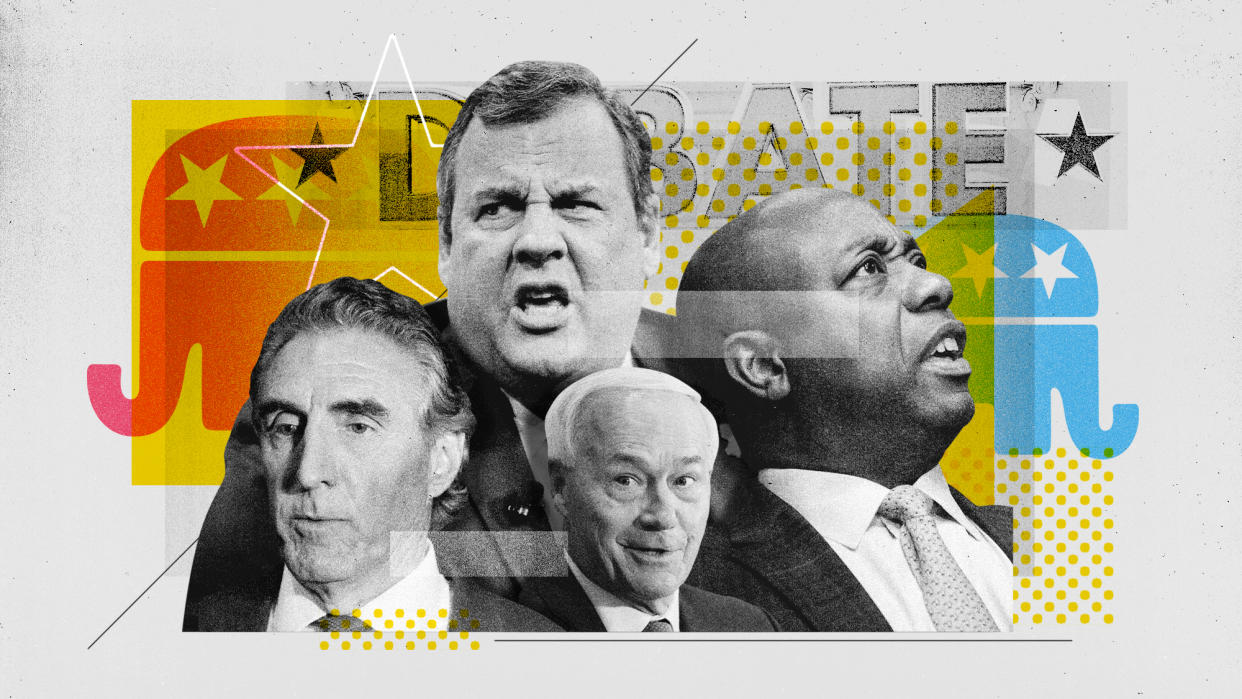Is the great GOP candidate culling season upon us?

- Oops!Something went wrong.Please try again later.
- Oops!Something went wrong.Please try again later.
In the end, there can be only one. And while there are still months to go before Iowa caucus attendees cast the first ballots of the 2024 presidential primaries, a steady trickle of GOP candidates have already come to the inexorable conclusion that they won't be the one to lead their party into next year's general election.
This week, former Republican Rep. Will Hurd became the latest candidate to bow out of the GOP presidential race. "[I]t has become clear to me and my team that the time has come to suspend our campaign," he said in a Monday statement posted on X, the platform formerly known as Twitter. Urging his supporters and donors to "unite around an alternative candidate" to Donald Trump, Hurd threw his support behind one-time South Carolina Gov. Nikki Haley, lauding among other things her "willingness to articulate a different vision for the country" than the former president.
While perhaps the highest profile Republican to drop out of the presidential primary, Hurd isn't the first candidate to end their campaign — nor will he be the last. With a third GOP debate less than a month away and the Federal Election Commission's third-quarter fundraising deadline looming, more and more candidates will be forced to grapple with the question of whether they have the money, energy and electoral lane to continue to challenge Trump for a nomination increasingly within his grasp. As time passes and the opportunities to break away from the pack begin to dwindle, will this fall be the season for a major culling of Republican candidates?
What the commentators said
Candidates will likely have to "make hard choices before the third debate" on Nov. 8, GOP strategist Alex Conant told Politico. That debate, with its higher barrier to entry, coupled with the FEC's third-quarter filing deadline, could be "devastating for some candidates" who "haven’t shown real growth" in terms of fundraising. This filing matters because it offers the "last financial indicator we see until very close to [the] Iowa caucuses and [the] New Hampshire primary for these campaigns," GOP consultant Jim Merrill explained to Fox News.
At this point, the decision to stay in or drop out of the race may not be a matter of money, either. Instead, it could be a question of "discipline," New Hampshire Republican Gov. Chris Sununu told Fox News last month — particularly when it comes down to whether defeating Trump for the nomination outweighs the personal benefits of being the nominee. "When you think about it that way, the voters’ job is to find the alternate to Trump, but the candidates’ job [is] to get out of that race," he added, predicting that if you "make it a one-on-one race, Trump loses."
That calculation seemed to play a major role in longtime conservative commentator George Will's recent call for South Carolina Sen. Tim Scott to do as Hurd did and drop out of the race to endorse Haley. The longer candidates stay in the race, the more they are "unintentionally enacting a political version of the tragedy of the commons," Will said in The Washington Post, explaining that "when everyone has a right to graze cattle on the commons, no one has an incentive for restraint; soon, the commons are barren and all who pursued their self-interest are equally injured." (As The Post noted, Will's wife is an adviser for Scott's presidential campaign and "disagrees" with her husband's column.)
What next?
Expect the pressure on "lower-polling" candidates to drop out to be more intense this year than in years past, especially after the large field of Republican candidates in 2016 effectively handed the nomination to Trump, Politico reported. The "2024 proceedings" will also "start more than two weeks earlier this time around," as well.
As for who might drop out next, "all eyes are on two other long-shot contenders who, like Hurd, were unsuccessful in making the first two debates — Larry Elder and Perry Johnson," Fox reported. Asked by the network whether he would also consider quitting if he didn't make the third debate, former Arkansas Gov. Asa Hutchinson responded, "Sure."
